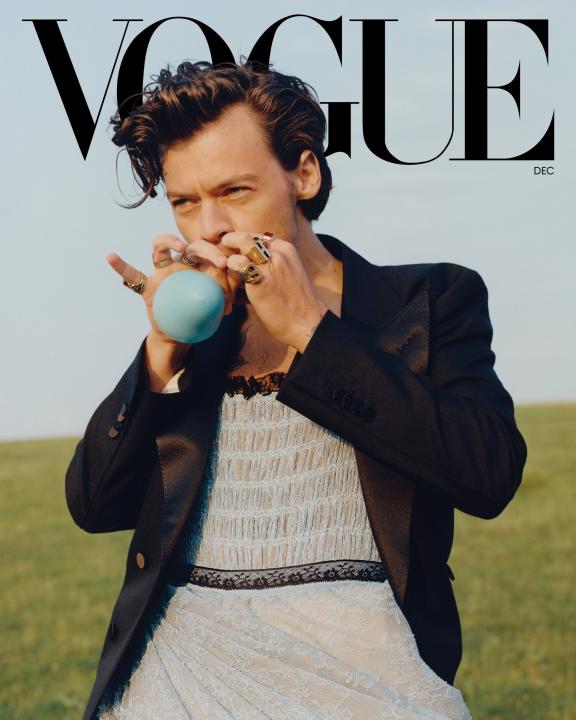“Bring back manly men.”
This was the caption for musician Harry Styles’ most recent Instagram post, which included a photo of him on the cover of “Vogue” magazine, in a dress. While his specific caption was a direct response to conservative commentator Candace Owens’ critique of the cover deeming it “an outright attack [on strong and manly men],” many were praising his act as revolutionary.
Yes, Styles’ willingness to be photographed in a dress is admirable, but I have news for you: It’s really not the revolutionary act you think it is or want it to be.
The reality is, Harry Styles is not the first man to exhibit a more feminine gender expression, and he certainly will not be the last. For decades, male artists have participated in more fluid gender expressions, examples being David Bowie and Prince, two artists known and remembered for their androgynous sense of style.
Even in more recent years, more male artists have been seen sporting a more “feminine leaning look,” with musician Lil Uzi Vert being one notable example. However, many artists have critiqued Uzi’s style, like R&B artist Tyrese, who stated that he “can’t ‘IDentify’ with today’s hip-hop” because of the way he dresses. Unsurprisingly, Uzi has yet to receive any of the praise Styles has, though he has been exploring more feminine styles since 2018.
This lack of recognition among minorities is not uncommon. BIPOC have consistently been at the forefront of movements regarding gender identity, expression and sexuality, while white people are not only consistently given credit for their work, but are also historically the first to reap the benefits of their sacrifices.
Two individuals from the BIPOC community that we must credit are Sylvia Rivera and Marsha P. Johnson, two transgender women who were the driving force behind the Stonewall Riots, a six-day protest for queer rights and against a police raid that took place in 1969, sparking the start of the gay rights movement.
So, let us not forget that we owe Sylvia Rivera and Marsha P. Johnson, a Latina drag queen and a Black transgender woman, for the rights and luxuries that queer people around the country have today.
Equally important, if the societal goal is to normalize men in dresses, we need to stop making a spectacle of it when we see it happen. Celebrities don’t inherently deserve praise for acting in ways we want or furthering progressive ideals, because they oftentimes will not face the same repercussions as everyday individuals do.
Though Harry Styles wearing a dress was a courageous act, because of his celebrity status and partially because of his whiteness, he is unlikely to face the same criticism that “regular” men would receive if they were to do the same.
For many men across the nation, wearing a dress out in public means not only opening themselves up to criticism and harassment, but possible violence as well. These are consequences Styles may never have to face solely because of his layers of privilege, so why should he be praised for it?
At the end of the day, it’s fair to assume that Harry Styles’ Vogue Cover inspired a cisgender boy somewhere to put on a dress, and that’s a truly wonderful thing. But to give him credit for the work of BIPOC individuals and activists is not. Because without their contributions, he never would have been able to put on a dress in the first place.

